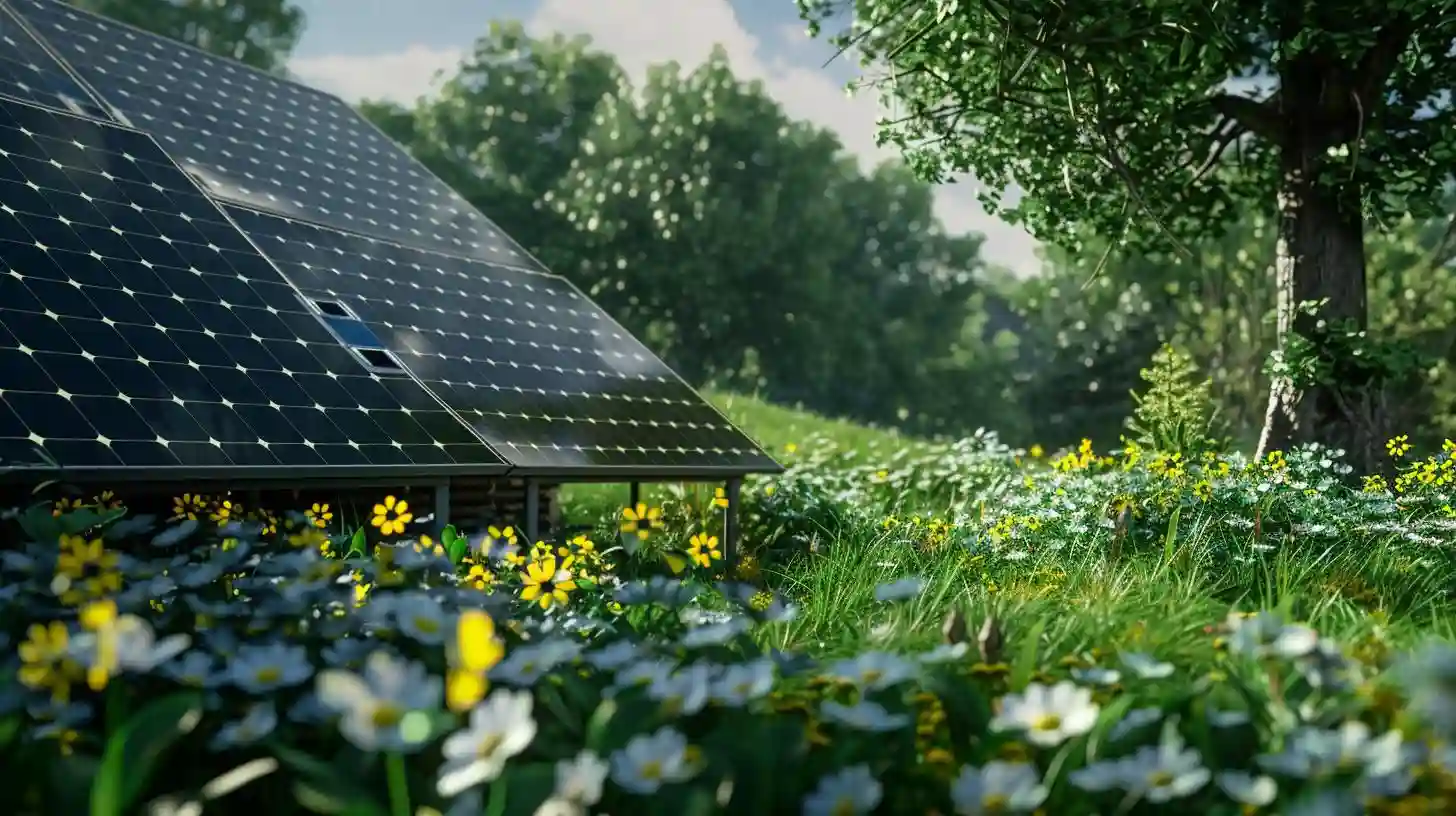
There has been a significant shift towards renewable energy in recent years as countries around the world seek to reduce carbon emissions and combat the effects of climate change. One of the most popular forms of renewable energy is solar energy, which is generated by harnessing the sun's energy through the use of solar panels. Solar panels are becoming more common in both residential and commercial settings, and for good reason. In this article, we'll look at the benefits of solar panels and why they are an important component of a sustainable energy future.
What are solar panels?
Solar panels, also known as photovoltaic (PV) panels, are devices that convert sunlight into electricity. They are made up of multiple solar cells, which are usually made of silicon, a semiconductor material. When sunlight hits solar panels, photons from the sunlight are absorbed by the silicon cells, creating an electrical current. This current is then converted into useful electricity through an inverter, which can be used to power homes, businesses and other buildings.
Advantages of solar panels
1.Environmentally friendly
One of the main advantages of solar panels is that they are an environmentally friendly source of energy. Unlike traditional fossil fuels, which release harmful greenhouse gases when burned, solar panels generate electricity without producing any emissions. This means that using solar panels can help reduce air pollution and combat climate change by reducing the amount of carbon dioxide and other greenhouse gases released into the atmosphere.
Additionally, solar panels do not require water to generate electricity, unlike fossil fuel power plants that consume large amounts of water for cooling. This makes solar energy a more sustainable and water-efficient electricity generation option, especially in regions where water resources are limited.
2. Energy independence
Another key benefit of solar panels is that they provide energy independence to homeowners and businesses. By generating their own electricity from the sun, solar panel owners can reduce their dependence on traditional utility companies and protect themselves from rising electricity prices. This is especially important in regions where electricity prices are unstable or where grid reliability is a concern.
Additionally, solar panels can provide a reliable source of electricity in remote or off-grid locations where grid access is limited. By installing solar panels, homeowners and businesses can generate their own electricity and reduce their dependence on fossil fuels, diesel generators, or other unreliable power sources.
3. Financial savings
In addition to the environmental benefits of solar panels, they also offer significant financial savings to homeowners and businesses. Although the initial costs of installing solar panels can be high, the long-term savings on your energy bills may outweigh the initial investment. In many cases, solar panels can pay for themselves within a few years through lower energy costs and potential incentives or rebates offered by government programs.
Additionally, solar panels can increase the value of a property, making it more attractive to potential buyers. A home or business with solar panels is considered more desirable as it offers lower energy bills and a more sustainable source of electricity. This can result in a higher resale value and a faster sale when the property comes up for sale.
4. Renewable and sustainable energy sources
Solar energy is a renewable and sustainable source of electricity that will never run out as long as the sun shines. Unlike fossil fuels, which are limited resources that are being depleted at an alarming rate, solar energy is abundant and freely available to anyone with access to sunlight. This makes solar energy a sustainable option to meet the world's growing energy needs while reducing our dependence on fossil fuels and other non-renewable energy sources.
Additionally, solar panels have a long lifespan, typically 25-30 years or more if properly maintained. This means that once installed, solar panels can generate electricity for decades with minimal impact on the environment. By investing in solar panels, homeowners and businesses can help reduce their carbon emissions and contribute to a cleaner, more sustainable future for future generations.
5. Job creation and economic growth
The solar industry is a major source of job creation and economic growth, with millions of people employed in the design, production, installation and maintenance of solar panels. As the demand for solar panels continues to grow, so does the need for skilled workers in the industry. This has led to the creation of thousands of new jobs in the renewable energy sector, providing opportunities for workers of all backgrounds and skill levels.
In addition, the solar industry has the potential to stimulate economic growth by attracting investment, creating new business opportunities and stimulating local economies. Solar projects require a range of services and products, from solar panel manufacturing to installation and maintenance, that can benefit a wide range of businesses and industries. By investing in solar energy, countries can create new jobs, stimulate innovation and promote economic development, while reducing their dependence on fossil fuels and imported energy sources.
Conclusion
In conclusion, solar panels are an important component of a sustainable energy future and offer a wide range of benefits to homeowners, businesses and the environment. By harnessing the sun's energy, solar panels provide a clean source of electricity that can help reduce air pollution, fight climate change and promote energy independence. In addition, solar panels provide significant financial savings, increase property values and support job creation and economic growth in the renewable energy sector.
As countries around the world strive to transition to a clean energy economy, solar panels will play a critical role in meeting growing demand for electricity while reducing our dependence on fossil fuels and other non-renewable energy sources. By investing in solar panels, homeowners and businesses can take control of their energy future, save money on their energy bills, and do their part to create a cleaner, more sustainable planet for future generations. Harnessing the sun's energy through solar panels is not only a smart decision for the environment, but also a smart investment in a brighter, more sustainable future.